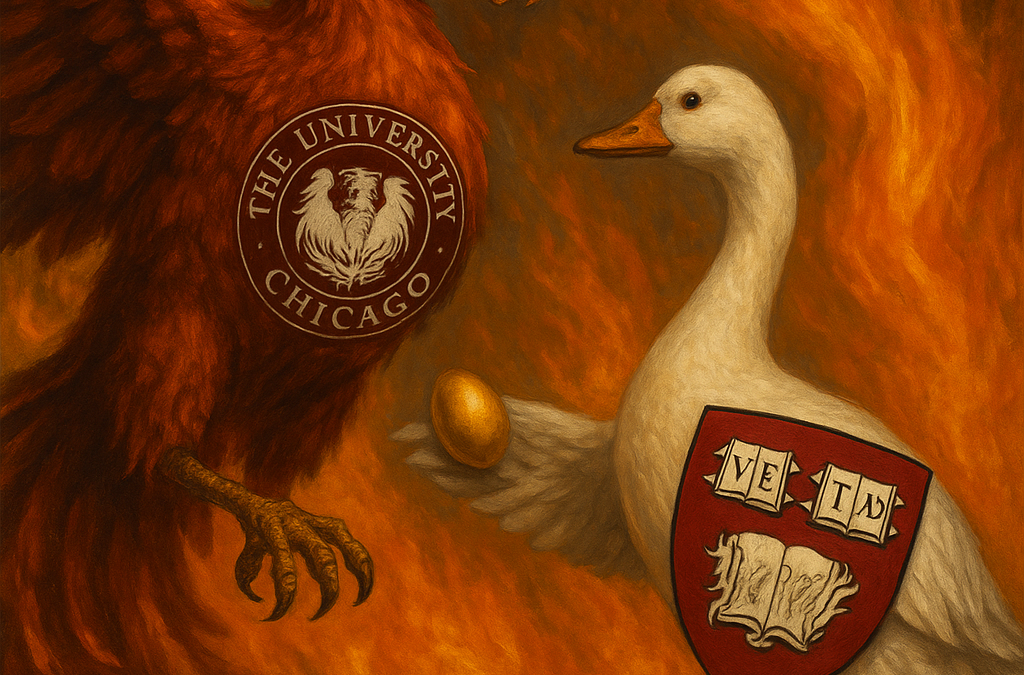
We all know the difficulties that Harvard has been going through, and I thought that it would be fun to showcase an actual Harvard perspective, so I’m sharing this free article from the New York Times to all of you written by Steven Pinker, from my own subscription.
It is well worth reading, and I hope you will enjoy it if you choose to read it!
Link: https://www.nytimes.com/2025/05/23/opinion/harvard-university-trump-administration.html?rsrc=ss&unlocked_article_code=1.KE8.FQW2.LxEovGin6Ef6&smid=nytcore-ios-share&referringSource=articleShare
Pinker is a disarming man.
If you read his articles, they are quirky yet intellectually engaging. The man stuffs so many different facts into a single paragraph that it often makes me wonder how or whether he just has access to all of the ideas he does, articulating within a single hand wave expressions and fires of the most deeply interconnected set of neurons I may have ever witnessed on the planet.
Well, at least that’s what I feel having read Pinker for quite a number of years now – And not knowing that he was the Johnstone Professor of Psychology at Harvard University Well, that’s just a lack of attention to detail on my part, but it’s an interesting reality Sometimes people may have done or know far more than you might even think, perceive, or understand And sometimes these surprises can be rather fascinating.
Read the essay and it will give you a picture of what I understand about elite universities in the US at this point – Not exactly woke madrasas or the very headquarters of the CCP as President Trump seems to suggest, but instead as something rather different, definitely vibrant albeit with its flaws, where strident opinions are often shared, becoming the very voice of a generation through nothing more than the saliency bias and social media even amid an admitted climate where certain ideas are put to rest not because they are bad ones, but instead because of certain unspoken rules and norms within the anomalous “them” and in Harvard in particular as an institution.
I should say that I studied in the U.S. as well, and at what some might call an elite school – there are certain archaic rankings and celebrations of Mental Gymnastic Olympics that assert that we are institutions of the same tier.
As we see from the IPEDS Peer Institution Ranking (shown as a little association network originally taken from the Chronicle of Higher Education – “Who Does Your College Think Its Peers Are?” – https://www.chronicle.com/article/who-does-your-college-think-its-peers-are#id=166027), some of these celebrations can be extremely convincing in asserting that we are the same, we are equal, we are amazing!!
But we are not.
They were founded in 1636 by the Massachusetts General Court to train Puritan clergy on land chosen because it was closest to God, aka because the minister Thomas Shepard lived nearby (lol), but we cannot say anything – We came in 1892 on the literal swamp that is Hyde Park today.
They have an endowment of $53.2 billion, the largest of any university in the world. We are paupers at $10.1 billion.
They have 162 Nobel Prize winners who freely flock onto campus like pigeons drawn to power, prestige, and endowment returns. We have 101—many of whom are in economics, a field Harvard still half-considers social alchemy even as we drag bruised bodies away on the wreck of neoliberalism.
They have 8 Presidents of the United States, from John Adams to John F. Kennedy—an entire Mount Rushmore of legacy admits, Lee Hsien Loongs, Tharman Shanmugaratnams, and Lawrence Wongs – and then there is Obama who, depending on what you believe, either outweighs all of them cumulatively or basically plunges us into negative territory – oh, and what made you think he was Chicago when he was born there by accident, worked there by choice, and learned from Harvard Law School?
Historically, financially, academically, and politically, we are not the same. Beyond question and on every measure, it is Harvard that stands as the sociological definition of excellence, most easily understood and articulated in our modern society and across the generations.
Now, some may say, rightfully or wrongfully, that the shield of truth and veritas has broken into a million pieces, and become melded together into a modern-day Frankenstein- pastiche parody of its former self. I am sure that that would be entertaining and easy bait for all of us peons who were not smart or worldly enough to either apply or get in, but I would not want to be like the fox that reached for the grapes, could not get them, and concluded that they were sour.
Rather I take a different tack – It is valid, fair, and correct to take the elite to account to make them reassess their standards once upon a sociological turn – And sometimes, pain and a severing break from the past is what is necessary to create that change. Will that change kill the goose that laid the golden eggs? Perhaps.
…But does it matter if that goose was actually involved in an advanced counterfeiting scandal?
Well, I suppose you never know with these Harvard-educated geese. 🪿
Jokes aside, evaluating things requires nuance. To or paraphrase recently deposed PKR Deputy President Rafizi Ramli, things are not totally white or black. Sometimes, when you see things that are black, you might want to blacken them. Black black black? We whiten everything and kerat, kerat, kerat – but occasionally, there is no need for that.
…But occasionally, might that need exist?
To determine when it is appropriate and when it is not. In the fullest of all consideration, and with an eye to the future, we must look upon the matter with wide and broad eyes before we decide.
Yet here it seems that the Rubicon has already been crossed, Charon has already rowed across the lake, and the Torii gate has been well and bypassed – and now, the pain is certain and the wound is real.
But what kind of recovery will it be?
Will it be the sort that grows a muscle? Or kills the patient and the goose and makes the billions of eggs that were indistinguishable between gilt and gold into a single omelet in the flavor of scorched earth?
We shall see!
Victor Tan,
May 27th, 2025.
PS: Yes, that is a phoenix and a goose. Thank AI for the broken logos. You are welcome. 😊

